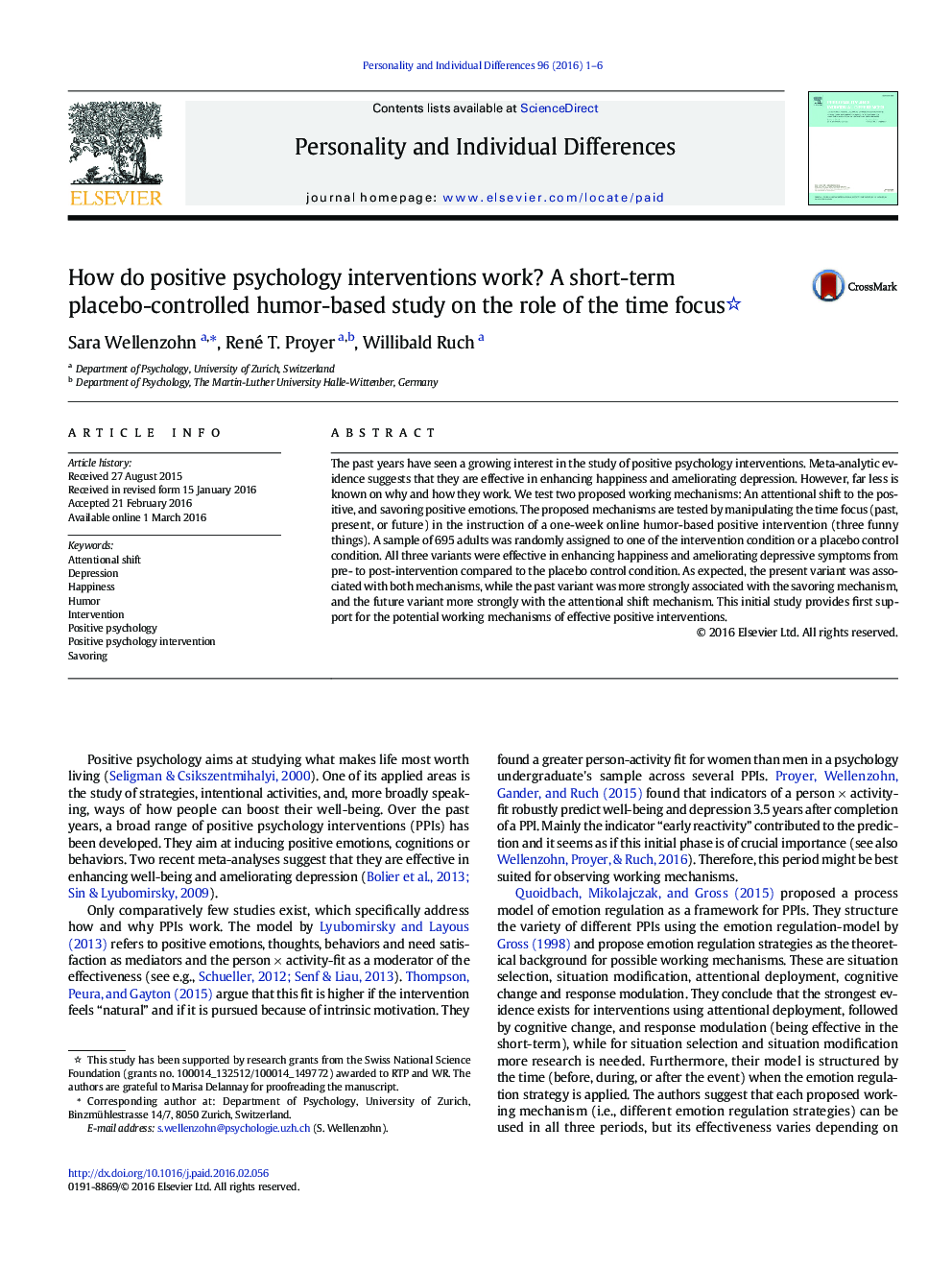| Article ID | Journal | Published Year | Pages | File Type |
|---|---|---|---|---|
| 7249965 | Personality and Individual Differences | 2016 | 6 Pages |
Abstract
The past years have seen a growing interest in the study of positive psychology interventions. Meta-analytic evidence suggests that they are effective in enhancing happiness and ameliorating depression. However, far less is known on why and how they work. We test two proposed working mechanisms: An attentional shift to the positive, and savoring positive emotions. The proposed mechanisms are tested by manipulating the time focus (past, present, or future) in the instruction of a one-week online humor-based positive intervention (three funny things). A sample of 695 adults was randomly assigned to one of the intervention condition or a placebo control condition. All three variants were effective in enhancing happiness and ameliorating depressive symptoms from pre- to post-intervention compared to the placebo control condition. As expected, the present variant was associated with both mechanisms, while the past variant was more strongly associated with the savoring mechanism, and the future variant more strongly with the attentional shift mechanism. This initial study provides first support for the potential working mechanisms of effective positive interventions.
Keywords
Related Topics
Life Sciences
Neuroscience
Behavioral Neuroscience
Authors
Sara Wellenzohn, René T. Proyer, Willibald Ruch,
